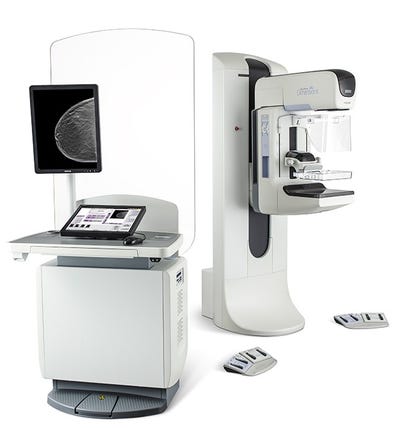Are Breast Cancer False Positives Akin To Racial Profiling?
January 13, 2017
Danish breast cancer study sparks fiery debate over mammography false positives.
Amanda Pedersen

Not all breast tumors pose the same risk, and treating them as though they do is akin to racial profiling, according to Otis Brawley, chief medical officer of the American Cancer Society.
Brawley shared his views on "accepting the existence of breast cancer overdiagnosis" for an accompanying editorial to a Danish study recently published in the Annals of Internal Medicine.
The study has sparked a fierce debate in the breast cancer community. Some experts have criticized the study for being confusing and misleading at best, and inaccurate at worst. Others, like Brawley, acknowledge the possibility that some women who believe their lives were saved by mammograms were actually harmed by surgery, radiation, and even chemotherapy that they didn't actually need.
But don't go canceling that mammogram appointment just yet.
The American College of Radiology (ACR) admits that some mammograms have lead women to being treated needlessly for breast cancer, but said the problem is far less common than the recent study suggests. While the regional nature of the study does make it difficult to interpret the results on a global scale, the ACR cited another study from Denmark that estimated the overdiagnosis rate at only about 2%, which is in line with the organization's estimates.
Don Wells, a radiologist specializing in women's health at UT Health NE, said most of his colleagues in the breast cancer imaging field put the rate of mammography false positives in the ballpark of 1% to 10%, which is quite a bit lower than what the Danish researchers found. The study included women between the ages of 50 and 69 who began getting mammograms in Denmark at different ages, from 1980 to 2010.
"There have been lots of studies to show that since the 1980's, screening mammography has resulted in a 30% decrease in mortality or deaths related to breast cancer," Wells said. "Those are difficult to dismiss. For screening purposes, screening mammography is the gold standard."
Amanda Pedersen is Qmed's news editor. Reach her at [email protected]
About the Author(s)
You May Also Like


